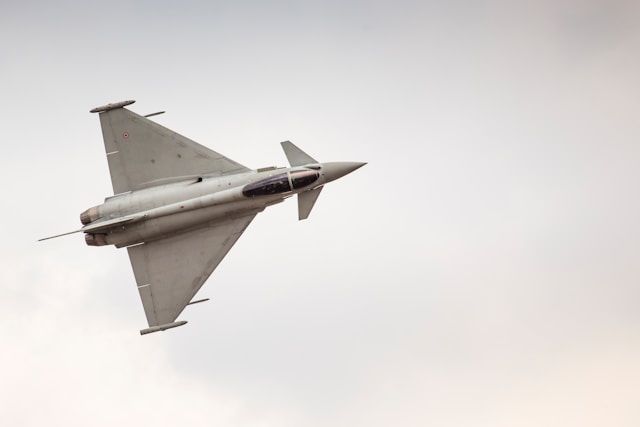Tense encounter marks second interception in six months
In a recent escalation of military tensions over the Black Sea, a Russian fighter jet was dispatched to intercept three British military planes, including an RC-135 electronic reconnaissance and warfare aircraft accompanied by two RAF Typhoon multi-role fighters. According to Russian state media, the interception occurred as the British aircraft were detected approaching Russia’s state border, prompting immediate action from the Russian forces.
The encounter led to the British planes altering their course away from the Russian border, following the Russian jet’s approach. The incident concluded without any reported casualties or violations of the Russian state border, as the Russian aircraft returned safely to its base.
Embed from Getty ImagesThis latest incident underscores the continuing friction between NATO forces and Russia, particularly in regions of strategic military interest like the Black Sea. The interception is part of a pattern of military posturing and encounters in international airspace, with this event marking the second time in six months that Russian jets have been scrambled in response to British aircraft.
The prior incident in September involved an attempt by a Russian Su-27 fighter jet to shoot down a British spy plane, carrying 30 crew members, off the coast of Ukraine. The Russian pilot had fired two missiles, believing he had authorization to engage the British aircraft, highlighting the grave risks of misunderstanding and escalation in these high-stakes encounters.
As tensions remain high, such incidents serve as a stark reminder of the delicate balance of deterrence and diplomacy required to manage international airspace encounters. The ongoing military engagements in regions like the Black Sea are closely monitored by global security analysts, emphasizing the need for continued dialogue and mechanisms to prevent unintended escalations between NATO members and Russia.
